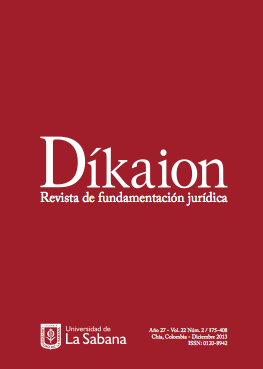Hegel’s influence on the work and thinking of John Rawls
Keywords:
Political philosophy, philosophy of law, pluralism, public reason, Hegel, Rawls.Abstract
The intention of this paper is to demonstrate how the Berlin philosopher influenced the development of Rawls’ theory of political justice. Following a theory of Justice (1971), given the attention the Harvard professor paid to what the critics had to say and to his revision of the book, scholars of his work are practically unanimous in that there is a change in the approach to his doctrine of justice as fairness. With Kantian Constructivism in Mo- ral theory (1980), a more pragmatic and less universalistic twist begins to emerge, one that is demonstrated more solidly in Political liberalism (1993), sparking talk of a "second Rawls". in lectures on the History of Moral Philosophy, published posthumously, Rawls comments primarily on Hegel’s Philosophy of law (Philosophie des Rechts der grundlinien Naturre- chtundStaatswissenschaft ), revealing a concurrence or harmony between both these thinkers with respect to the study of social reality, their anti- dualist tendency and their vision of classical liberalism, although Rawls did not abandon contractualism. Brief reference also is made to the influence of Hume and dewey, which serves to round out the group of modern thinkers who influenced Rawlsian theory, both in form and substance.
Downloads
Published
How to Cite
Issue
Section
License
1. Proposed Policy for Journals That Offer Open Access
Authors who publish with this journal agree to the following terms:
This journal and its papers are published with the Creative Commons License Attribution-NonCommercial-NoDerivatives 4.0 International (CC BY-NC-ND 4.0). You are free to share copy and redistribute the material in any medium or format if you: give appropriate credit, provide a link to the license, and indicate if changes were made; don’t use our material for commercial purposes; don’t remix, transform, or build upon the material.






